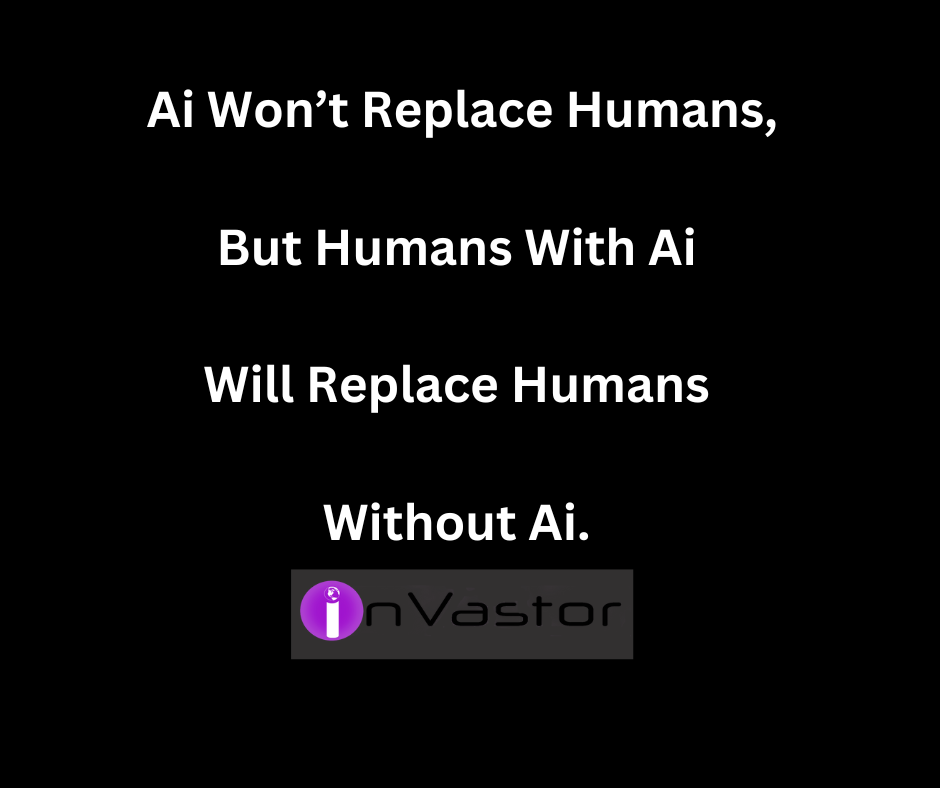
All

AI Won't Replace Humans But Humans With AI Will Replace Humans Without AI
Artificial Intelligence (AI) has become an integral part of our lives, revolutionizing various industries and enhancing human capabilities. While there is a fear that AI will replace humans in the workforce, the reality is that AI is more likely to augment human abilities rather than replace them entirely.
When humans embrace AI and incorporate it into their workflow, they gain a competitive edge over those who do not. Let's consider a few examples to illustrate this point:
- Medical Diagnosis: AI-powered systems can analyze vast amounts of medical data and assist doctors in diagnosing diseases more accurately. By leveraging AI, doctors can make more informed decisions, resulting in better patient outcomes. However, AI alone cannot replace the empathy and human touch that doctors provide in patient care.
- Customer Service: Chatbots and virtual assistants have become prevalent in customer service. These AI systems can handle routine inquiries, freeing up human agents to focus on complex and emotionally sensitive customer interactions. The combination of AI and human support leads to more efficient and personalized customer service experiences.
- Manufacturing: AI-powered robots have automated many repetitive and dangerous tasks in manufacturing facilities. This not only increases productivity but also improves worker safety. However, humans are still needed to oversee and manage these AI systems, ensuring quality control and adaptability to changing production needs.
It is important to note that AI is a tool that amplifies human capabilities rather than a replacement for human labor. The key to success lies in humans collaborating with AI to achieve better outcomes.
References:
Related Posts
© 2025 Invastor. All Rights Reserved

User Comments